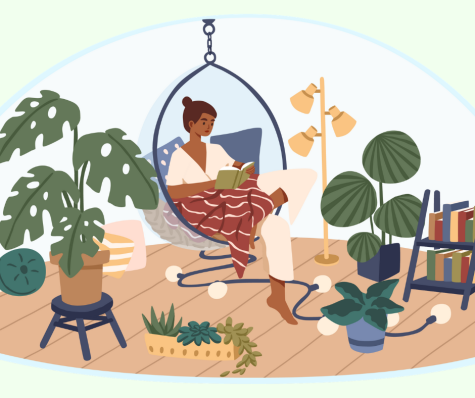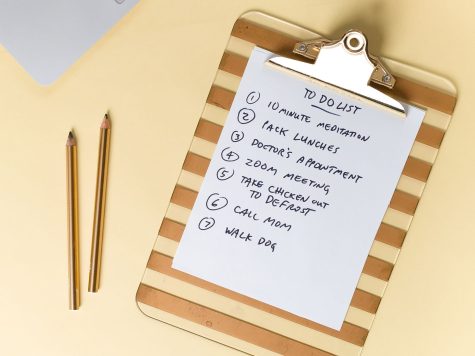Six Things to Do When You Are Struggling With Depression
January 16, 2023
Depression is a real thing. It is scary. It can be hard. However, that does not mean that there are not ways to cope when you or someone you know is struggling with depression. There are plenty of activities that you can do that are proven by science and sworn by many to work, and sometimes all it takes is a new approach to make life a bit more bearable.*

1) Exercise
Movement is great for your body, and especially when the chemicals in your brain don’t seem to be working right, a little bit of movement can help balance them out. Feel like working out? Perfect, go do that. Don’t have the motivation? We’ve all been there, just take the dog for a walk or do some light yoga. Don’t have a dog? Buy a harness for your cat, or take your fishbowl on the walk with you for emotional support. Just remember that the hardest part of getting yourself to move is going to be the initial thought of moving. Even if you don’t do a lot, remember that, “[Starting] with five minutes a day of walking or any activity you enjoy. Soon, five minutes of activity will become 10, and 10 will become 15.”, as Dr. Michael Craig Miller of Harvard Medical states.

2) Pay Attention to Your Sleep
It sounds redundant, but trying to aim for more sleep can really help your body and your brain, as “short sleep duration has been shown to be increasing in prevalence worldwide with a concurrent increase in depressive symptoms, mainly among the younger population” (Al-Maddah). However, sometimes it is not that easy and getting to sleep earlier can be impossible, or sleeping longer is just not an option. In that case, focus on trying to get the best sleep possible, think reducing device time before bed and trying to let your brain wind down. If you struggle with depression related insomnia or a trouble falling asleep, try listening to soothing music or ASMR to try and help you and your brain quiet down and fall asleep.

3) Remember To Eat And Drink
Nourishing your body is important, and sometimes in the midst of a depressive episode you might lack the motivation to eat or drink, forget to do it, or just don’t feel like you deserve to (you do). Setting alarms every now and then to take a sip of water or eat a snack could be helpful to you, and just remember that you don’t have to eat healthy every meal. Sometimes just eating in itself is a win, and if you don’t feel like making food, takeout will always work, so long as your body is getting the fuel that it needs to thrive. Hydration will help you feel more alert, and it can help you feel less foggy and stuck in your head, as many people with depression can feel.

4) Reset Your Space
This does not have to be a big HGTV-esque re-do of your bedroom or anything ludicrous like that. This only needs to be a small reset that helps to make things easier for you. For some people, setting things out on a dresser or bedside table can help them remember to do that certain thing, like setting a water bottle next to your bedside table to remind you to drink water when you wake up the next morning. It could even be something a bit bigger, like putting your clothes away, or even picking five items off the floor. It does not have to be a big change for it to make a huge difference in the way that you view yourself and your space. Resetting your space can help to clear your head, as well as shake things up a little, which is part of the reason why it is included in the many “mental health resets” that can be found all over the internet nowadays. Just a small change in your space can make a huge difference for your brain.
5) Establish Small Routines
A routine can do a lot for your brain, and it does not have to be anything big! You can start small, with the addition of something in routines that you might already have, like an additional snack when you get home from school, drinking water when you wake up, or light stretching before you go to bed. A small difference or addition in your daily routine can slowly help you over time, and they can help you add in things to your day that bring you joy or make you feel better about yourself, both of which can be important coping strategies when it comes to depression. A small change to your daily routine can lead to you feeling more productive, and can be seen as taking one step towards control in your life.
6) Do What Works Best For You
This article is simply meant to be helpful advice. It could be that some, all, or none of these methods work for you. That’s okay! We are all different and human and what works best for you might not work best for another person. Finding what works for you is a process of trial and error, and it can take several tries to find a method or coping mechanism that works for you. If you know that something works for you, keep doing it! Just because it is not included in articles like these does not mean that it is not the best thing for you and your life. You keep on doing you.
DISCLAIMER: This article is merely giving suggestions to help alongside other regimes in treating depression. It is not a fix all. If you or someone you know might be struggling with depression, reach out to a person you trust and seek help from a professional, or call a helpline**. Depression differs in person to person, and your experience may not be the same as someone else’s.
**Helplines:
1-800-662-4357 – SAMHSA (Substance Abuse and Mental Health Services Administration) National Helpline
1-800-273-8255 – National Suicide Prevention Lifeline
1-800-442-4673 – National Hopeline Network
Articles Referenced:
1. Al-Maddah EM, Al-Dabal BK, Khalil MS. Prevalence of sleep deprivation and relation with depressive symptoms among medical residents in King Fahd University Hospital, Saudi Arabia. Sultan Qaboos Univ Med J. 2015;15:78–84. [PMC free article] [PubMed] [Google Scholar]


